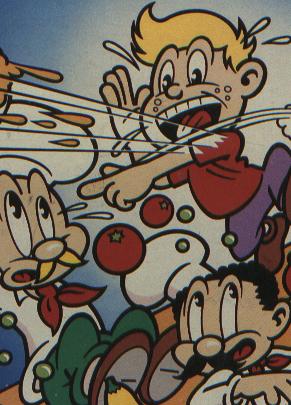 The Gay Uncle heard a good one today in the category of Food-Related-Insanity.
The Gay Uncle heard a good one today in the category of Food-Related-Insanity.
A close friend was visiting another friend around mealtime, and was horrified (and secretly titillated) to hear her peer deliver three contradictory food messages all bundled up at once. The host friend’s two year-old daughter was sitting down to eat dinner, and wasn’t doing as good a job with her meal as mommy wanted (whatever that means) and after a few rounds of useless cajoling (have you ever tried to make an animal eat? It doesn’t really work.) the mom stood over her and delivered the cluster bomb, “If you don’t eat more of those chicken fingers, I’m going to give you a time-out. Plus you won’t get the treat I have for you in the freezer. And I don’t understand why don’t you eat well for me? I saw you eating for daddy earlier.” Now, parents have a duty to provide nourishment for their kids, and clearly there’s some innate evolutionary tie between doing so and one’s sense of worth as a parent. But kids receive enough confounding food messages already, and folks just confuse them further if food is used as a means to an end (or a source of parental competition!) Unless your child is suffering from overt signs of malnourishment–weight loss, weakness, palpitations, diarrhea–just follow the Gay Uncle’s three simple rules:
- Provide sensible portions of a balanced group of foods
- Distribute these foods at a regular and routinized number of intervals each day
- Stand Down! Avoid using food as a bribe, punishment, reward, or weapon
What if they simply don’t eat?
It’s highly unlikely that a young child will starve themselves to death. Follow the rules above and they will learn to eat when they’re hungry.
Remember, if you blow a gasket every time they turn their nose up at food, your child will quickly learn that this is an excellent strategy for getting this kind of attention.